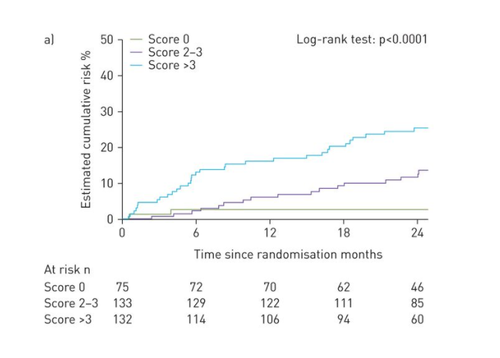Among patients who have had a first episode of unprovoked pulmonary embolism (PE), age, pulmonary vascular obstruction index (PVOI) and presence of antiphospholipid antibodies (APLAs) may be independent predictors of recurrent venous thromboembolism (VTE), according to a new study published in the ERJ.
Researchers carried out multivariate analyses using data from the PADIS-PE randomised trial.
371 patients with a first unprovoked pulmonary embolism initially treated for six months were included in the study; all patients underwent ventilation/perfusion lung scan at inclusion.
Patients were randomised to receive 18 months of warfarin or placebo and were followed up for a median two years after study treatment/placebo discontinuation.
Multiple multivariate models were performed after randomisation in the placebo group and at the end of the 18 months of anticoagulation in the warfarin group.
During a median follow-up of 41 months, symptomatic recurrent VTE occurred in 67 patients.
Researchers found that age, PVOI at the time of pulmonary embolism diagnosis and/or after six months of anticoagulation and APLAs were independent predictors of recurrent VTE; patients with at least one of these factors represented 95.4% (63 patients) of all recurrences.
PVOI at PE diagnosis, which was present in 40% of patients, was also associated with a 2-fold increased risk of recurrent VTE.
The authors state that the findings are consistent with previous studies in patients with unprovoked VTE, but note that the patient group may be too small to evaluate the impact of other potential predictors such as sex, chronic inflammatory disease, residual deep vein thrombosis, or protein deficiencies.





